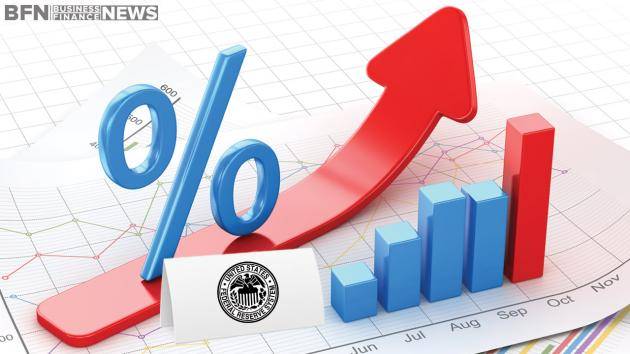

Major decisions about the economy are often buried on the financial pages with news about business shenanigans, corruption, mergers and acquisitions — news that doesn’t directly affect workers unless they work for the corporations involved.
But a decision by the Open Market Committee of the Federal Reserve System to raise the basic interest rate on short-term loans, for the first time in nearly 10 years, could have a major impact on workers. More significant than the size of the increase announced on Dec. 16, which is just a quarter of 1 percent, is the promise of future increases.
The Federal Reserve Bank’s charter proclaims it has two priorities in managing the U.S. money supply: keeping inflation manageably low and promoting employment.
The real priority of this institution, however, is to guarantee that the big private U.S. banks continue to dominate the economy and get the lion’s share of the profits. This was apparent after the 2007-08 crisis, when the Fed poured $29 trillion into bailing out these and other institutions that they declared were “too big to fail,” while millions of homeowners lost everything. (Levy Economics Institute, December 2011)
“Official” inflation is so low in the United States that the Social Security Administration is justifying its decision that the 56 million people receiving benefits — 36 million retirees plus dependents, surviving spouses and people with disabilities — will get no cost-of-living increase in 2016. They unfairly decided this even though people on a low income trying to buy food and medical care while paying rent or a mortgage know their living expenses have indeed gone up.
According to Fed Chair Janet Yellen, the emphasis is on “normalizing” monetary policy. Yellen’s assumption is that the economy has improved, inflation is on target, and employment is getting stronger.
But the latest report of the Bureau of Economic Analysis, part of the Commerce Department, puts the inflation rate of Personal Consumption Expenses — which the Fed says it prefers to use — at 1.5 percent, far below the Fed’s target. The real unemployment rate, taking into account discouraged workers, is around 13 percent. A lot of economic analysts allege unemployed workers now dependent on disability checks might also seek jobs if they were available. Wages have stagnated for more than a decade, basically due to high unemployment.
Not all pro-capitalist economists agree with the Fed’s decision. The Economic Policy Institute’s Josh Bivens said: “Today’s actions are a worrisome backwards step. Despite years of steady progress restoring the damage inflicted by the Great Recession, a full economic recovery remains incomplete. … The potential benefits to holding off on further rate increases and allowing further improvements in unemployment are enormous: greater work opportunities for millions of Americans and higher wages for tens of millions more.” (epi.org, Dec. 16)
Bivens emphasized that inflation is well below the target, the U.S. economy is certainly not at full employment, and the wages of workers have not recovered, although corporate profits have.
Threat of deflation
Deflation is a general fall in prices, sometimes called negative inflation. One of its hallmarks for workers is a cut in wages, often drastic. It is accompanied by growth in unemployment.
Prices have fallen in Greece, for example, for the last 33 months, and wages, which often go unpaid, have fallen by 30 percent to 40 percent. Greece is the only country in Europe where the minimum wage fell between 2008 and 2015.
Behind deflation in the U.S. and worldwide is capitalist overproduction. The drop in production causes falling commodity prices for raw materials, especially oil, but also metals like gold, copper and nickel, as well as products like coffee, cotton and cocoa.
The Wall Street Journal in its Dec. 18 issue addresses the threat of deflation in the U.S. by pointing out that even though the Fed hiked interest rates, driving up the costs for banks that needed short-term funds, “broader market forces conspired to drive other U.S. interest rates down.”
Banks have not raised the interest they pay depositors, though they have indeed hiked the rate they charge borrowers.
The Fed doesn’t have a simple way to force rates up. It has to rely on complex financial transactions. It takes some time for rate hikes to have an impact on the economy, and if the Fed goes too far, correction can be difficult.
The function of central banks, like the Federal Reserve, is to stabilize the money supply that the banks have centralized and to smooth out the inevitable fluctuations of economies based on greedy, competing interests. A stable, growing economy lets the capitalists more efficiently exploit workers. But the inherent contradictions of capitalism burst out in crises from time to unpredictable time.
While no one has a crystal ball about what the economic future holds, given the state of capitalism at a dead end, it’s fairly certain that sooner or later, when the next bust comes, the workers will once again take the biggest hit.
As part of Workers World newspaper’s coverage marking the 50th anniversary of the liberation of…
From the PFLP Central Media Office The following statement from the Popular Front for the…
Newark, New Jersey Over 250 people, representing over 250 New Jersey endorsing community groups, attended…
Special to Workers World The following is a press release issued on April 24, 2025,…
dear Larry Krasner, we heard you sued Elon Musk over his corrupt million election giveaways…
Unions join forces against harassment and deportation of members When 200 immigrant workers – from…